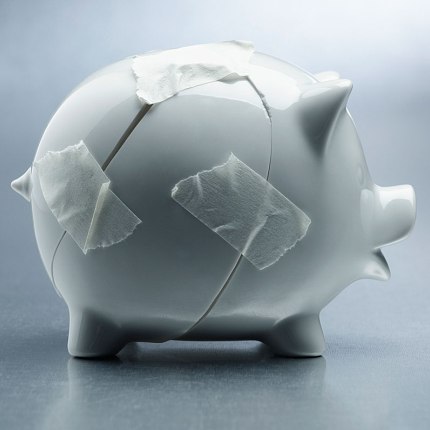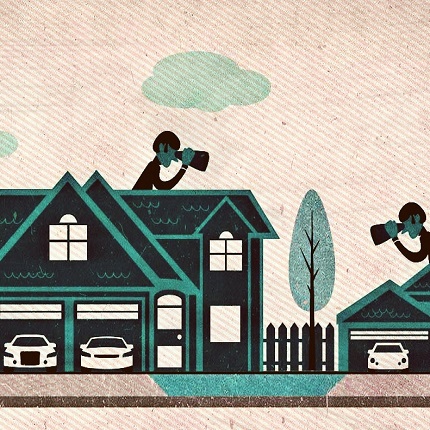Spend Too Much? Here’s What Is Causing You To Be A Shopaholic
 Shopping “holidays” like Black Friday and Amazon Prime Day are designed to entice consumers to spend as much as possible on items they may not have planned to purchase.
Shopping “holidays” like Black Friday and Amazon Prime Day are designed to entice consumers to spend as much as possible on items they may not have planned to purchase.
But even in the absence of such events, it’s common for consumers to succumb to pressures to make impulse buys. Nearly 90% of people recently surveyed by CNBC and Acorns said they sometimes make impulse purchases.
The Invest in You Spending Survey was conducted by CNBC and Acorns in partnership with SurveyMonkey from June 17–20. A diverse range of 2,803 Americans were polled across the country, ranging in age from 18 to over 65. Of the total, 1,320 were men and 1,498 had a college degree.
There are multiple psychological factors that go into every purchase decision that you make. Here’s a look at a few common ones—and advice on how to avoid those spending triggers.
Spending Money Makes You Happier
“Retail therapy is a real thing,” says April Lane Benson, a psychologist and author of To Buy or Not to Buy: Why We Overshop and How to Stop. “You can see it on a brain scan when someone buys something. It’s just like taking a drug. Their mood gets better.”
A 2014 study in the Journal of Pyschology found that making purchases not only reduced feelings of sadness, but also restored a sense of personal control.
“For people who feel out of control in other parts of their lives, such as they’re going through a bad breakup or there’s an illness in the family,” Benson says. “When they’re shopping, they feel like they have control over what they buy. They can take it home and nobody can stop them, and they’re not relying on anybody else. ”
The problem, of course, is that the happiness spike brought on by purchases is typically only short term, and emotional spenders may end up doing long-term damage to their bank account and financial plans.
How to beat it: Ask yourself these 6 questions before every purchase.
Impulse purchases, by definition, mean that you haven’t thoroughly thought through the transaction. Before you get to the register, Benson suggests asking yourself six questions about every purchase:
- Why am I here?
- How do I feel?
- Why do I need this?
- What if I wait?
- How will I pay for it?
- Where will I put it?
If you can ask and answer those questions to your satisfaction, then it’s probably not an impulse purchase, because you’ve looked at it from both the financial and emotional angle, and you’ve created some space before buying it, ” she says.
It Feels Good To Get A Deal
We’ve all felt the thrill of scooping up an item at a huge discount.
“This stems from our animal brains, which are programmed for instant gratification. In caveman days, that impulse helped avoid spoiled food or prevent hunger during a famine,” says Dr. Brad Klontz, financial psychologist and co-founder of the Financial Psychology Institute.
Retailers tap into that sense of urgency with sales, making you feel like you’re going to miss out on a limited-time offer or that items might run out if you don’t purchase them right away. But it’s worth remembering that if you’re not actually saving money unless you were planning on purchasing the it anyway. If you bought it just to get the deal, you’re falling into a retail trap.
How to beat it: Skip the sales entirely.
“You shouldn’t go into a store because they’re having a sale, you should go in because you are looking to buy a specific item,” Klontz says. “If you go in just because they’re having a sale, you’re going to fall victim to whatever psychological tricks that retailer is throwing at you to separate you from your money.”
Instead, shop around for things that you actually need. Do some research into items before you buy them to make sure that you’re getting a good value and keep an eye out for coupons or sales in that category. That way you’ll still get the rush from finding the best price—without having to worry about buyers’ remorse later.
You’re Trying To Keep Up With The Joneses
“This is another psychological urge that dates back to prehistoric times,” Klontz says. “We’re hard-wired to fit in with our social group, because you originally needed the group’s support and approval in order to survive and feed your offspring.”
In today’s world, the circle of people we’re trying to keep up with has expanded infinitely. It includes not only family and neighbors, but also old acquaintances on Facebook and even celebrities on Instagram.
“Depending on what’s in your feed, whether it’s a new home or a vacation or a great pair of sandals, you’re seeing all of the things that your contemporaries have,” says consumer psychologist Kit Yarrow “You’re just getting all of these new ideas of what you could and should have that you might not even have been thinking about.”
How to beat it: Practice gratitude.
A 2014 study found that people who practice were less impulsive about financial decisions and generally happier. Make some time each day to say or write down the things in your life that you’re thankful for. This can be big things like your health or your home, or little things like a warm day or a smile from a friend.
“Considering what you already have is a great way to keep from buying more,” Yarrow says. “You feel full and less tempted to fill those voids.”
Source: CNBC


